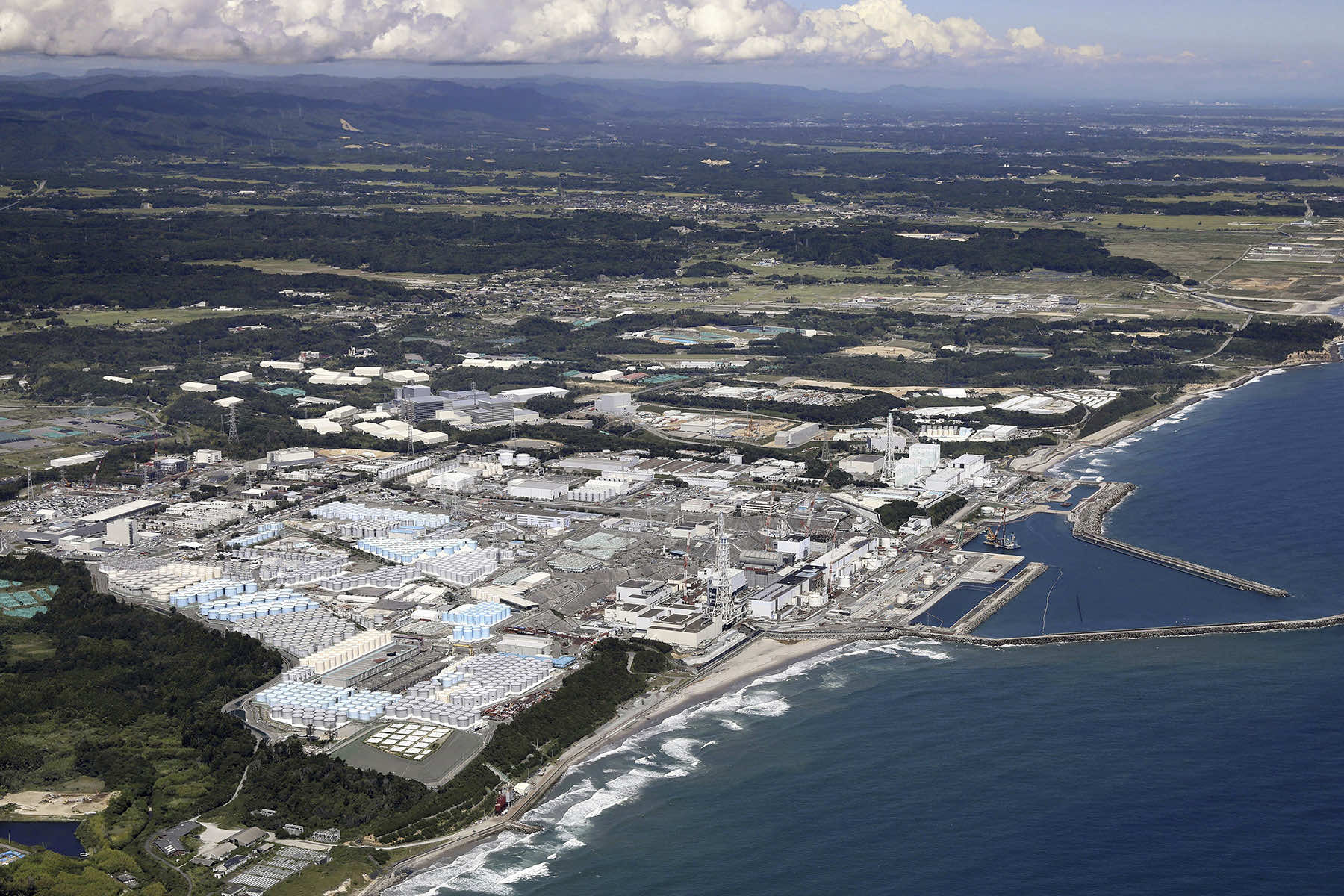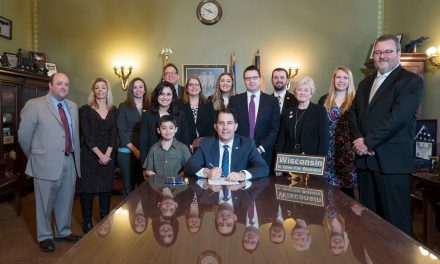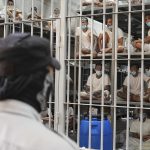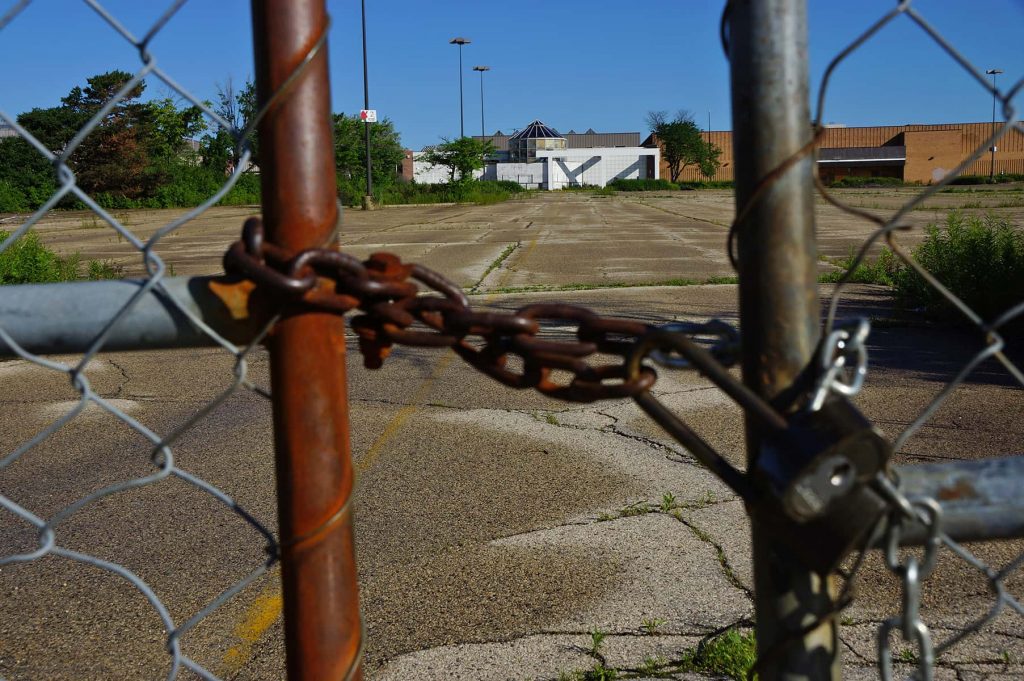
The head of the U.N. atomic agency observed firsthand the Fukushima Daiichi nuclear power plant’s ongoing radioactive wastewater discharges for the first time since the contentious program began months ago and called it an “encouraging start.”
International Atomic Energy Agency Director-General Rafael Grossi watched treated radioactive water being mixed with massive amounts of seawater and examined a water sampling station. He was escorted by utility Tokyo Electric Power Company Holdings president Tomoaki Kobayakawa.
The discharges have been opposed by fishing groups and neighboring countries including China, which banned all imports of Japanese seafood immediately after the release began.
An earthquake and tsunami damaged the Fukushima plant’s power supply and reactor cooling functions in 2011, triggering meltdowns of three reactors and causing large amounts of radioactive wastewater to accumulate. After more than a decade of cleanup work, the plant began discharging the water after treating it and diluting it with seawater on August 24, starting a process that’s expected to take decades.
Grossi last visited the plant in July after issuing an IAEA review predicting only negligible impact from the discharges. An IAEA comprehensive report later concluded that the discharges meet international safety standards.
Grossi said an IAEA office and a laboratory at the plant have been carrying out their own, independent evaluations of the discharges, and results had been in line with what they expected.
“We never say ‘this is done’ or ‘this is okay’ because there is a long way to go,” he said. “I would say it’s a very positive and encouraging start.”
Grossi also met with local officials and representatives from fishing and business groups and reassured them that the discharges are being carried out “with no impact to the environment, water, fish, and sediment.”
“There is no scientific reason to impose any restriction on products coming from us,” Grossi said.
He later stated that he was aware of “observations made by China” and noted that “I have an ongoing and very constructive dialogue with China regarding the operation here.”
He asserted that “the authority and the impartiality of what the IAEA does cannot be put into question,” adding that he was “very confident that the dialogue with China and with other countries will be constructive and we will be able to provide all the assurances as required.”
China’s ban on Japanese seafood mostly hit scallop exporters in Hokkaido. Tokyo has earmarked a fund of more than $680 million that includes compensation and other support, including measures to help find other export destinations.
Despite earlier fears that the water discharge would further hurt Fukushima’s hard-hit fishing industry, it has not damaged its reputation domestically.
Grossi stressed the importance of “transparency, technical accuracy, and wide open, honest dialogue and consultation.”
Prime Minister Fumio Kishida’s government has reversed earlier plans for a nuclear phaseout and is accelerating the use of nuclear power in response to rising fuel costs related to Russia’s full-scale invasion of Ukraine and pressure to meet decarbonization goals.
Grossi held talks with Japanese Foreign Minister Yoko Kamikawa to discuss further cooperation between the IAEA and Japan in non-proliferation, use of nuclear energy, and support to protect Ukraine’s nuclear power plant seized by the Russian military.
3.11 Exploring Fukushima
- Journey to Japan: A photojournalist’s diary from the ruins of Tōhoku 13 years later
- Timeline of Tragedy: A look back at the long struggle since Fukushima's 2011 triple disaster
- New Year's Aftershock: Memories of Fukushima fuels concern for recovery in Noto Peninsula
- Lessons for future generations: Memorial Museum in Futaba marks 13 years since 3.11 Disaster
- In Silence and Solidarity: Japan Remembers the thousands lost to earthquake and tsunami in 2011
- Fukushima's Legacy: Condition of melted nuclear reactors still unclear 13 years after disaster
- Seafood Safety: Profits surge as Japanese consumers rally behind Fukushima's fishing industry
- Radioactive Waste: IAEA confirms water discharge from ruined nuclear plant meets safety standards
- Technical Hurdles for TEPCO: Critics question 2051 deadline for decommissioning Fukushima
- In the shadow of silence: Exploring Fukushima's abandoned lands that remain frozen in time
- Spiral Staircase of Life: Tōhoku museums preserve echoes of March 11 for future generations
- Retracing Our Steps: A review of the project that documented nuclear refugees returning home
- Noriko Abe: Continuing a family legacy of hospitality to guide Minamisanriku's recovery
- Voices of Kataribe: Storytellers share personal accounts of earthquake and tsunami in Tōhoku
- Moai of Minamisanriku: How a bond with Chile forged a learning hub for disaster preparedness
- Focus on the Future: Futaba Project aims to rebuild dreams and repopulate its community
- Junko Yagi: Pioneering a grassroots revival of local businesses in rural Onagawa
- Diving into darkness: The story of Yasuo Takamatsu's search for his missing wife
- Solace and Sake: Chūson-ji Temple and Sekinoichi Shuzo share centuries of tradition in Iwate
- Heartbeat of Miyagi: Community center offers space to engage with Sendai's unyielding spirit
- Unseen Scars: Survivors in Tōhoku reflect on more than a decade of trauma, recovery, and hope
- Running into history: The day Milwaukee Independent stumbled upon a marathon in Tokyo
- Roman Kashpur: Ukrainian war hero conquers Tokyo Marathon 2024 with prosthetic leg
- From Rails to Roads: BRT offers flexible transit solutions for disaster-struck communities
- From Snow to Sakura: Japan’s cherry blossom season feels economic impact of climate change
- Potholes on the Manga Road: Ishinomaki and Kamakura navigate the challenges of anime tourism
- The Ako Incident: Honoring the 47 Ronin’s legendary samurai loyalty at Sengakuji Temple
- "Shōgun" Reimagined: Ambitious TV series updates epic historical drama about feudal Japan
- Enchanting Hollywood: Japanese cinema celebrates Oscar wins by Hayao Miyazaki and Godzilla
- Toxic Tourists: Geisha District in Kyoto cracks down on over-zealous visitors with new rules
- Medieval Healing: "The Tale of Genji" offers insight into mysteries of Japanese medicine
- Aesthetic of Wabi-Sabi: Finding beauty and harmony in the unfinished and imperfect
- Riken Yamamoto: Japanese architect wins Pritzker Prize for community-centric designs
Mari Yamaguchi and MI Staff (Japan)
Lее Mаtz
Eugene Hoshiko (AP), Hiro Komae (AP), and Kyodo News (via AP)

































